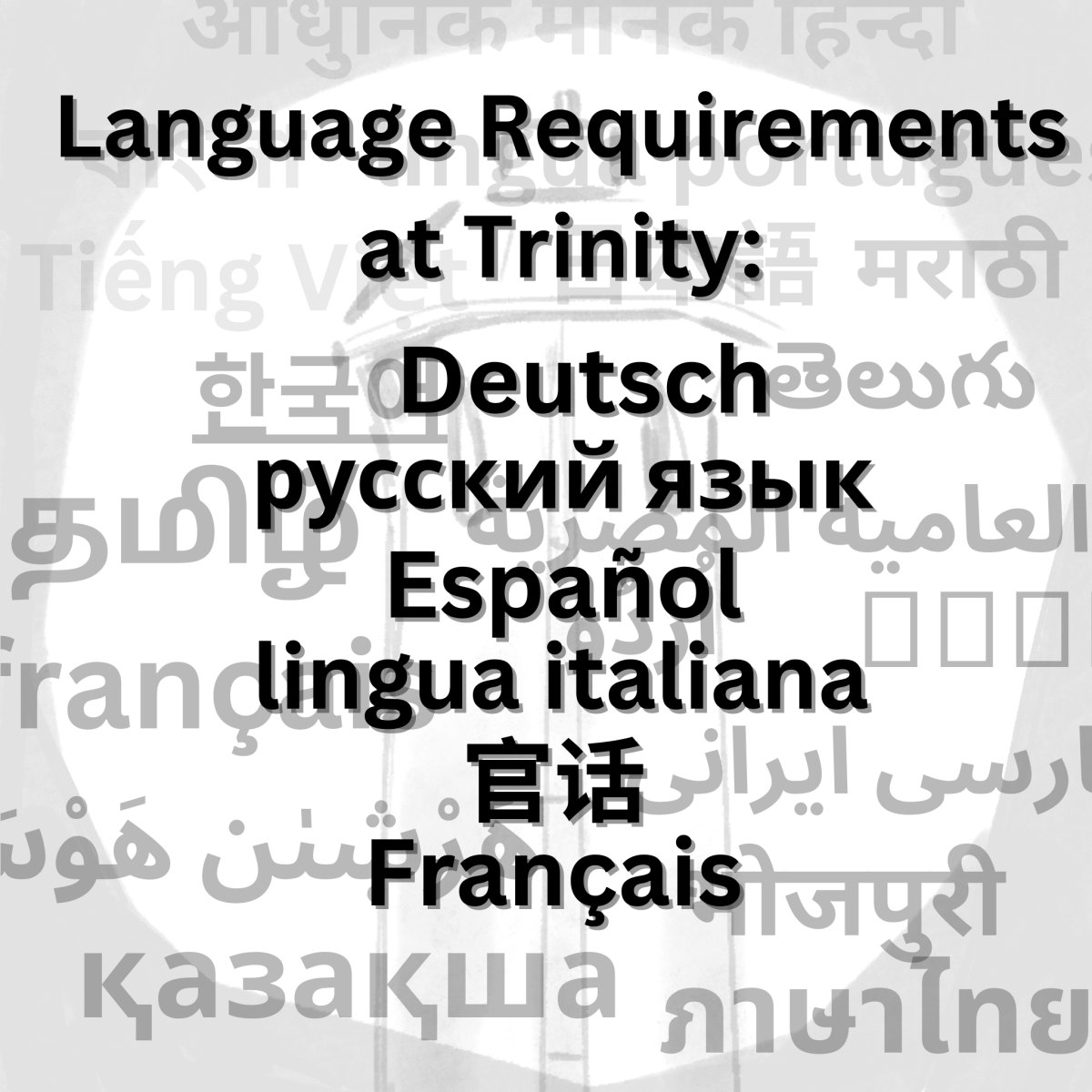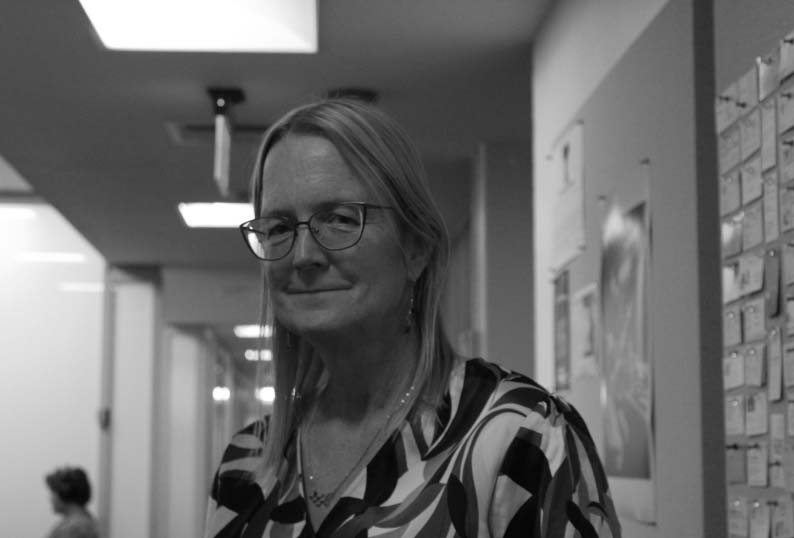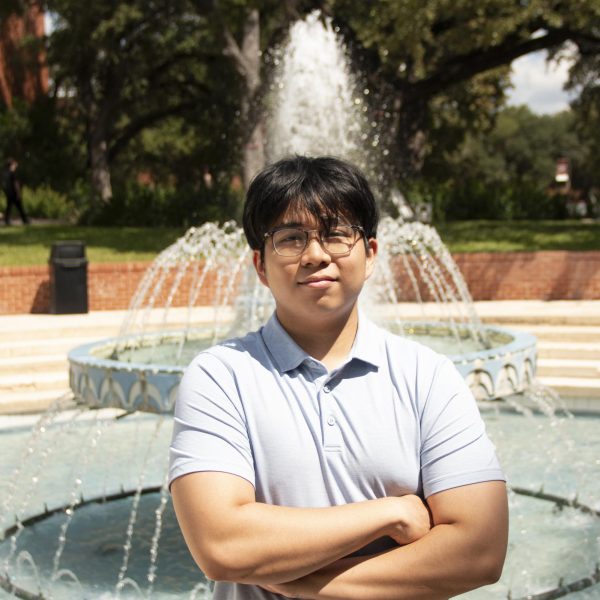When Student Iris Gkini learned her fluency in Greek would not be accepted as a foreign language at Trinity University, her options for class choice and study abroad were forcibly narrowed. Gkini is not alone in experiencing contradicting information on the options available for multilingual students.
All students are required to complete a second language at the level of intermediate or above. Those who already know a second language can use the school’s infrastructure to test out of these classes. However, this system only applies to Spanish, French, German, Russian, Italian, Japanese and Chinese — the languages offered by the modern languages and literatures department.
Several students, like Iris Gkini, sophomore economics major, speak other languages. Gkini is bilingual, speaking both fluent English and Greek. She said that she was told at a study abroad information session held by the Center of International Engagement that Greek would not be able to fulfill her requirements.
“I had the study abroad session last year, and I was asking about one of the requirements, and they said we had to fill a second language requirement, and I remember raising my hand and being, like, ‘Well, I do speak a second language, and it’s Greek. Will that be recognized?’” Gkini said. “And they said, ‘It’s not a common language, it’s not as common, you cannot really use that as ‘“OK you’re bilingual.”’’’
Nora Elkhadiji, sophomore economics major, grew up speaking Arabic at home and attending Arabic school as a kid. Like Gkini, Elkhadiji went to the study abroad session and said she left feeling confused.
“I don’t understand the logic behind it either because, I don’t know the number, but tens of hundreds of millions of people speak [Arabic] across the world,” Elkhadiji said.
Elkhadiji spoke with her academic advisor, who explained she could take Arabic classes somewhere that offers them and transfer the credits or find a way for a different university to test her proficiency.
Elkhadiji was then referred to the chair of the modern languages and literatures department, Rita Urquijo-Ruiz, but decided not to pursue the credit at that time. As a contact point, Urquijo-Ruiz can help students like Gkini and Elkhadiji receive their credit.
“In the past year, I have approved students who have been speaking Arabic as well as Korean,” Urquijo-Ruiz said. “We don’t speak those two languages here at Trinity University, but we are able to ask them to connect with an institution of higher learning that can test them on their level of proficiency, and when that happens, we are able to approve.”
Urquijo-Ruiz said that students can find a university that offers a proficiency exam to prove they understand the language at a level of intermediate or higher. Elkhadiji said this system places the burden on students.
“Because they don’t offer a language exam or proficiency exams, there’s just none of those baseline requirements to be met. Even so, you kind of have to start it from scratch,” Elkhadiji said. “And I would also have to pay out of pocket, which is something I would want to avoid.”
Gkini, in particular, faces additional challenges to receiving recognition for Greek. At Trinity, Greek is part of the classical studies department. To obtain credit for Greek, Urquijo-Ruiz says students should first speak with the classical studies department.
Greek, then, requires an additional step in the credit approval process. Gkini said she felt frustrated having to jump through so many hoops.
“I think [bilingual students] should at least have a little bit of recognition or make it easier to fulfill those requirements because that would make it easier for us to actually be more excited turning to things like study abroad,” Gkini said. “And that [study abroad session] did turn me off just because we have to do other requirements that we already had. When it adds more to study to what you already have it doesn’t really help.”
Despite these structural barriers, Urquijo-Ruiz said her department wants to support students in any way possible, offering flexibility and exceptions as part of that pursuit. She said that the goal of the modern languages and literatures department is to encourage students to learn about new cultures and languages. Urquijo-Ruiz stated that she wants to help students achieve this goal, but they need to reach out to her and work with her to do so.
“It honestly doesn’t matter to me as the chair of this department if the student has a second or third language. What matters is that they can demonstrate with a test. But because we don’t teach the language, we cannot test them ourselves,” Urquijo-Ruiz said. “If there are other languages that students speak that can be tested and for students to demonstrate an intermediate or higher level, I will not hesitate to approve those cases.”









